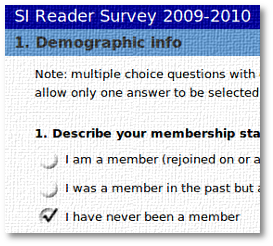[amazon 1572933097 thumbnail] [amazon 1572933097] [amazon 1572933097 binding], [amazon 1572933097 numberofpages] pages
[amazon 1572933097 publisher], [amazon 1572933097 publicationyear]
ISBN 10: [amazon 1572933097 asin] |
It all started with an e-mail I received one day—“See the latest deals on our new line of laptops!” With just one click of the mouse I was transported to the website of one of the leading computer retailers. The minutes quickly ticked by as I sat there dreaming of owning a more powerful machine, pondering any way that I could afford it, and contemplating the reason I would give my wife for such a “necessary” upgrade. What started as mere curiosity soon led to a disturbing amount of discontentment with the perfectly good computer I already had. Without even realizing it my heart had turned that advertisement into a full blown idol.
Greg Dutcher’s You Are the Treasure That I Seek serves to awaken us to the sobering reality that idolatry is very much alive and well in American Christianity, and indeed in our own hearts. “Idolatry is an old-fashioned word, consigned to social studies classes and Clive Cussler novels. But what if it’s alive and well, even in America? What if it’s a problem of such epidemic proportions that our unawareness of it is only making it worse?” (p. 16). Dutcher warns that to the extent that we have relegated idolatry to the jungles of Africa we have been deceived and have had our concept of idolatry shaped more by Indiana Jones than by Jesus and Paul. Written on more of a popular level, the book is a fairly quick read, although the subject matter and format (including a study guide with application questions at the end of each chapter) lend to a more thoughtful study of the book.
In the opening chapter of his epistle to the Romans, the apostle Paul tells us that “For although they knew God, they did not honor him as God or give thanks to him, but they became futile in their thinking, and their foolish hearts were darkened. Claiming to be wise, they became fools, and exchanged the glory of the immortal God for images resembling mortal man and birds and animals and reptiles” (Rom 1:21–23). Dutcher identifies the essence of idolatry in that one little word in verse twenty-three—exchanged. He writes,
Humanity’s illness is the idolatry syndrome. We were infected when our first parents considered a piece of fruit sweeter than fellowship with God. We were ruined when they deemed the word of a snake better than the promise of ‘a God who cannot lie’ (Titus 1:2). They compared. They calculated. They traded in God for a ‘better model.’ We’ve been doomed ever since. (p. 30)
 By the end of January 2010, SharperIron will have been on the Web for a full five years. Those years have seen quite a bit of change. At SI, members have come and gone, the moderating team has changed and one owner/publisher has passed the baton to another. And SharperIron’s context has changed as well. Fundamentalism’s self perception has shifted, the Internet has continued to morph.
By the end of January 2010, SharperIron will have been on the Web for a full five years. Those years have seen quite a bit of change. At SI, members have come and gone, the moderating team has changed and one owner/publisher has passed the baton to another. And SharperIron’s context has changed as well. Fundamentalism’s self perception has shifted, the Internet has continued to morph.
Discussion